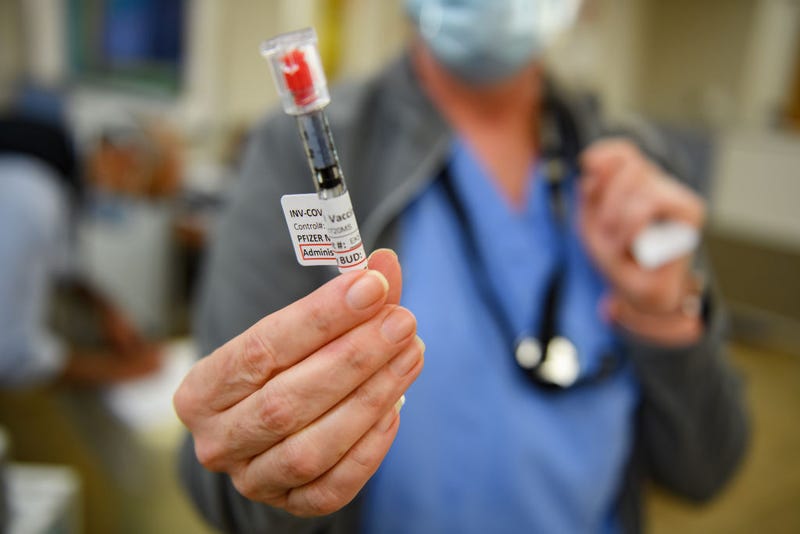
Vaccine shortages are affecting countries who rely on the World Health Organization’s COVAX program to distribute them.
According to the WHO, as of Monday, about half of the lower-income countries receiving COVID-19 vaccines through the program are out of supply or nearly there.
KCBS Radio’s Ring Central Newsline was joined on Tuesday morning by Emily Brouwer, the Managing Director of the Northwest Region at UNICEF USA, one of COVAX’s key distribution partners, to discuss the challenges.
"There are several reasons for the supply challenges," said Brouwer. The COVAX program is a global coalition committed to ensuring all countries have access to the COVID-19 vaccine, with a focus on low and middle income countries.
"Our goal is to deliver 2 billion vaccines in 2021, and we’ve already delivered 88 million vaccines to 131 countries," Brouwer said. "But unfortunately less than 1 percent of the global supply is reaching low-income countries."
According to Brouwer, COVAX officials are encouraging wealthy countries who have excess vaccine doses to contribute. The challenges in supply has been holding up delivery to low and middle income countries, where outbreaks are happening across the world, she said.
"More people have died of COVID-19 already this year than all of 2020, which has been led by outbreaks in these countries where vaccines remain out of reach," said Brouwer.
Areas that concern Brouwer in particular are the surges in South America, Asia, and Africa.
But it’s not just ensuring an adequate supply of vaccine doses that can prove challenging. "There’s a lot of work that goes into preparing a country to receive these vaccines," said Brouwer. Logistical issues include making sure a cooling system is ready, to keep the vaccine from spoiling, having supplies like syringes ready to go, having enough PPE for health workers, and having health workers who are trained properly.
But without these vaccines, none of this is possible. Brouwer was pleased by the recent G7 pledge of 870 million doses, and the Biden administration’s pledge of 80 million doses of vaccine doses, as well as 500 million of specifically Pfizer doses.
And time is of the essence. "We are really encouraging these countries to accelerate their timeline as much as possible," said Brouwer.

